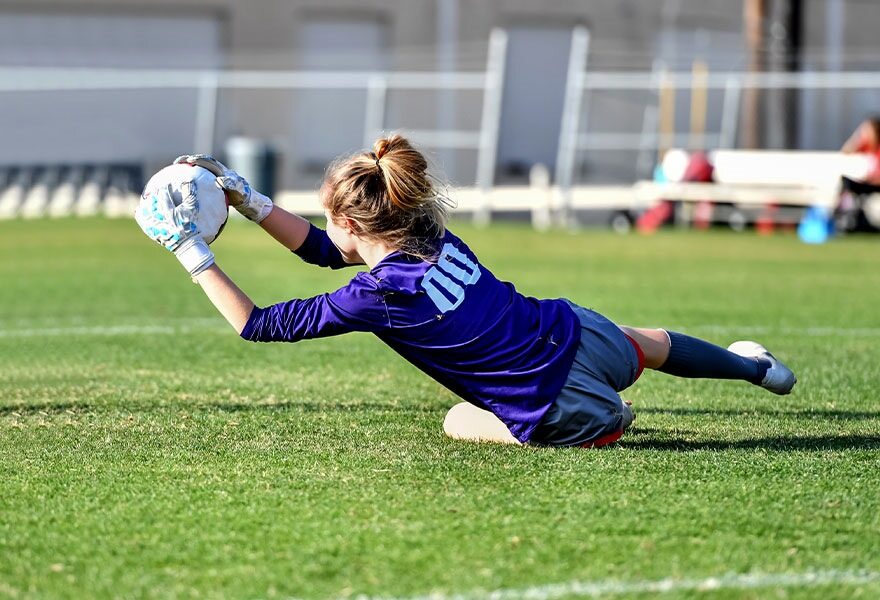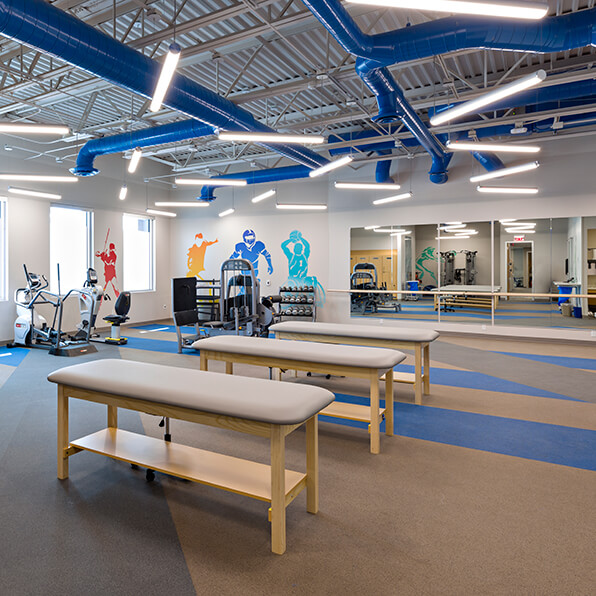You feel a dull ache deep in the shoulder. The pain wakes you up at night. Your arm is noticeably weak. You suspect a rotator cuff injury — and that surgery is in your future.
That may not be the case.
“With any rotator cuff injury, you want to catch it soon,” says Christopher Camp, M.D., orthopedic surgeon and medical director for the Minnesota Twins. “Typically, if we can catch it early on, injuries respond very well to nonoperative treatment, and you can bounce back to normal activities much more quickly.” Surgery may be needed for more severe or complicated injuries.
Recovery times will vary considerably, depending on the extent of the injury. Some patients who don’t need surgery are back to normal activities with a few weeks or months. After surgical repair, a complete return to vigorous physical activities may take six months or longer.
What is the rotator cuff?
The rotator cuff is the group of muscles and tendons that surround the shoulder joint. These muscles keep the head of your upper arm bone properly positioned within the socket of your shoulder. Injuries happen when a rotator cuff tendon is separated, either partially or completely, from the bone.
Rotator cuff injuries are one of the most common reasons that people seek care at Mayo Clinic Orthopedics and Sports Medicine. “Our patients are pitchers, weightlifters, tennis players and other athletes from recreational to professional levels. We also see carpenters, farmers, painters and others who use their shoulders extensively in their work,” says Dr. Camp.
Especially as you get older, rotator cuff injuries can happen to anyone. Rotator cuff tendons tend to fray over time, making them more vulnerable to damage as you hit your 50s and beyond.
A range of nonsurgical treatment options
The Mayo Clinic team will diagnose a rotator cuff injury or tear based on symptoms, a physical exam and imaging, such as X-rays or magnetic resonance imaging (MRI). Nonsurgical treatment options could include:
- Self-care: When the tear is minor, you can relieve discomfort by taking a break from activities (lifting, sports), applying ice regularly and taking a nonprescription anti-inflammatory medication, such as ibuprofen or naproxen sodium.
- Physical therapy: A physical therapist will teach you exercises to help restore strength and flexibility to your shoulder.
- Steroid injection: A steroid injection into the shoulder joint can ease pain and inflammation. However, this treatment is often limited to no more than one injection as repeated injections can cause deterioration in the joint.
Emerging therapies show promise
Mayo Clinic researchers are investigating new regenerative medicine therapies. One example is using platelet-rich plasma to help reduce inflammation and improve healing.
“To derive platelet-rich plasma, we use the patient’s blood, spin it down to get the platelets and the healing cells and inject it back into the patient’s shoulders,” says Kelechi Okoroha, M.D., orthopedic surgeon.
“Recent studies conducted by our team have shown the most benefit in tendon injuries such as the rotator cuff and mild-to-moderate arthritis,” he says.
Surgery needed for some patients
In some situations, surgery may be necessary. “For active patients with a complete tear of the tendon, surgery offers the most predictable and successful way of restoring function,” says Dr. Camp. The goal of surgery is to reattach the tendon to the bone.
Surgery is usually done on an outpatient basis through a minimally invasive, or arthroscopic, approach. “This allows us to repair the tendon through small incisions that result in decreased pain and a faster recovery,” says Dr. Camp. “With this approach, success rates are greater than 90%, with the vast majority of patients successfully returning to the activities they enjoy after the recovery and rehab process.”
Comprehensive treatment at Mayo Clinic
At the Mayo Clinic Orthopedics and Sports Medicine Rotator Cuff Clinic, the team includes orthopedic surgeons, sports medicine physicians, radiologists and physical therapists. Your care team will conduct a comprehensive exam and work with you to review and determine the best treatment option for your injury.
Most important, don’t delay in seeking care. “Prompt treatment often means quicker recovery,” says Dr. Camp. “Without treatment, rotator cuff problems may lead to more substantial pain, loss of motion or weakness.”






